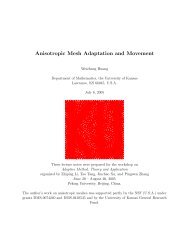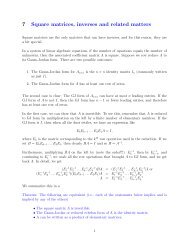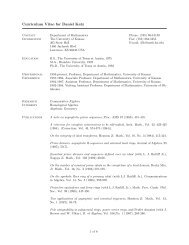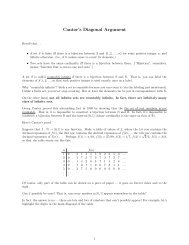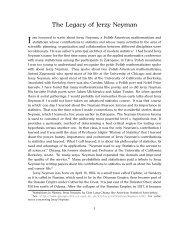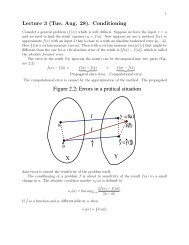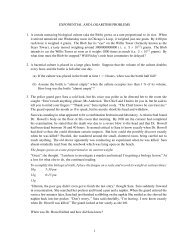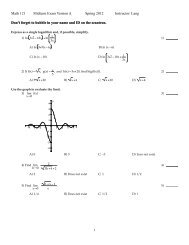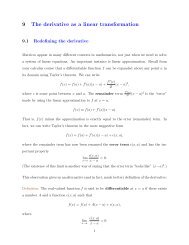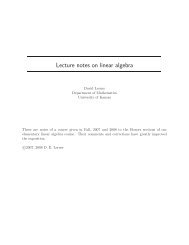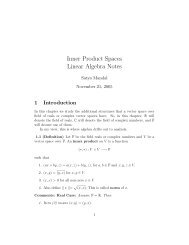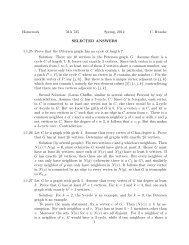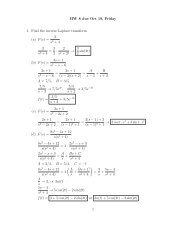Canonical Forms Linear Algebra Notes
Canonical Forms Linear Algebra Notes
Canonical Forms Linear Algebra Notes
Create successful ePaper yourself
Turn your PDF publications into a flip-book with our unique Google optimized e-Paper software.
8 Primary Decomposition<br />
We studied linear operators T on V under the assumption that the<br />
characteristic polynomial q or the MMP p splits completely in to<br />
linear factors. In this section we will not have this assumtion. Here<br />
we will exploit the fact q, p have unique factorization.<br />
8.1 (Primary Decomposition Theorem) Let V be a vector space<br />
over F with finite dimension dim V = n and T : V → V be a linear<br />
operator on V. Let p be the minimal monic polynomial (MMP) of T<br />
and<br />
p = p r1<br />
1 p r2<br />
2 · · · p rk<br />
k<br />
where ri > 0 and pi are distinct irreducible monic polynomials in<br />
F[X]. Let<br />
Wi = {v ∈ V : pi(T ) ri (v) = 0}<br />
be the null space of pi(T ) ri . Then<br />
1. V = W1 ⊕ · · · ⊕ Wk;<br />
2. each Wi is invariant under T ;<br />
3. Let Ti = T|Wi : Wi → Wi be the operator on Wi induced by T.<br />
Then the minimal monic polynomial of Ti is p ri<br />
i .<br />
Proof. Write<br />
fi = p<br />
p ri<br />
i<br />
= <br />
j=i<br />
p rj<br />
j .<br />
Note that f1, f2, . . . , fk have no common factor. So<br />
Therefore<br />
CGD(f1, f2, . . . , fk) = 1.<br />
f1g1 + f2g2 + · · · + fkgk = 1<br />
for some gi ∈ F[X].<br />
For i = 1, . . . , k, let hi = figi and Ei = hi(T )) ∈ L(V, V ). Then<br />
E1 + E2 + · · · + Ek = hi(T ) = Id. (I)<br />
26



